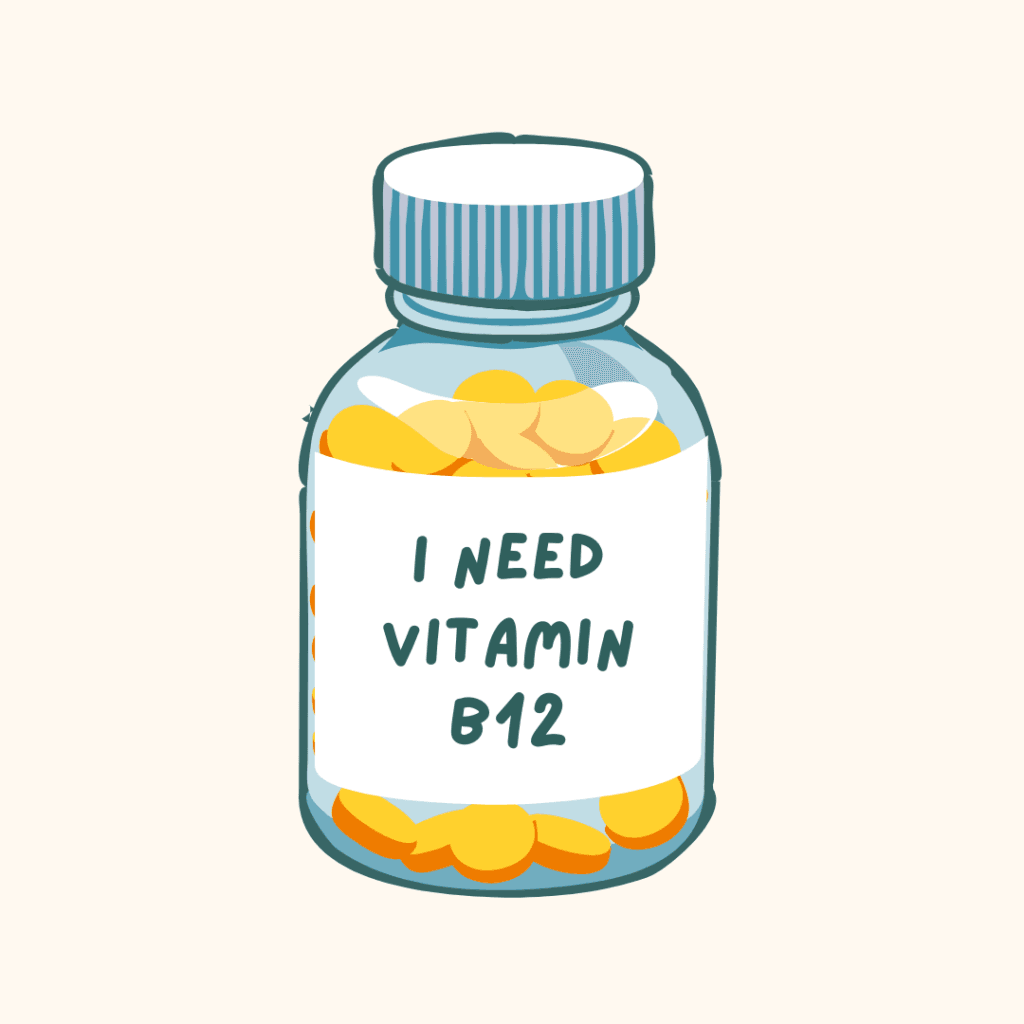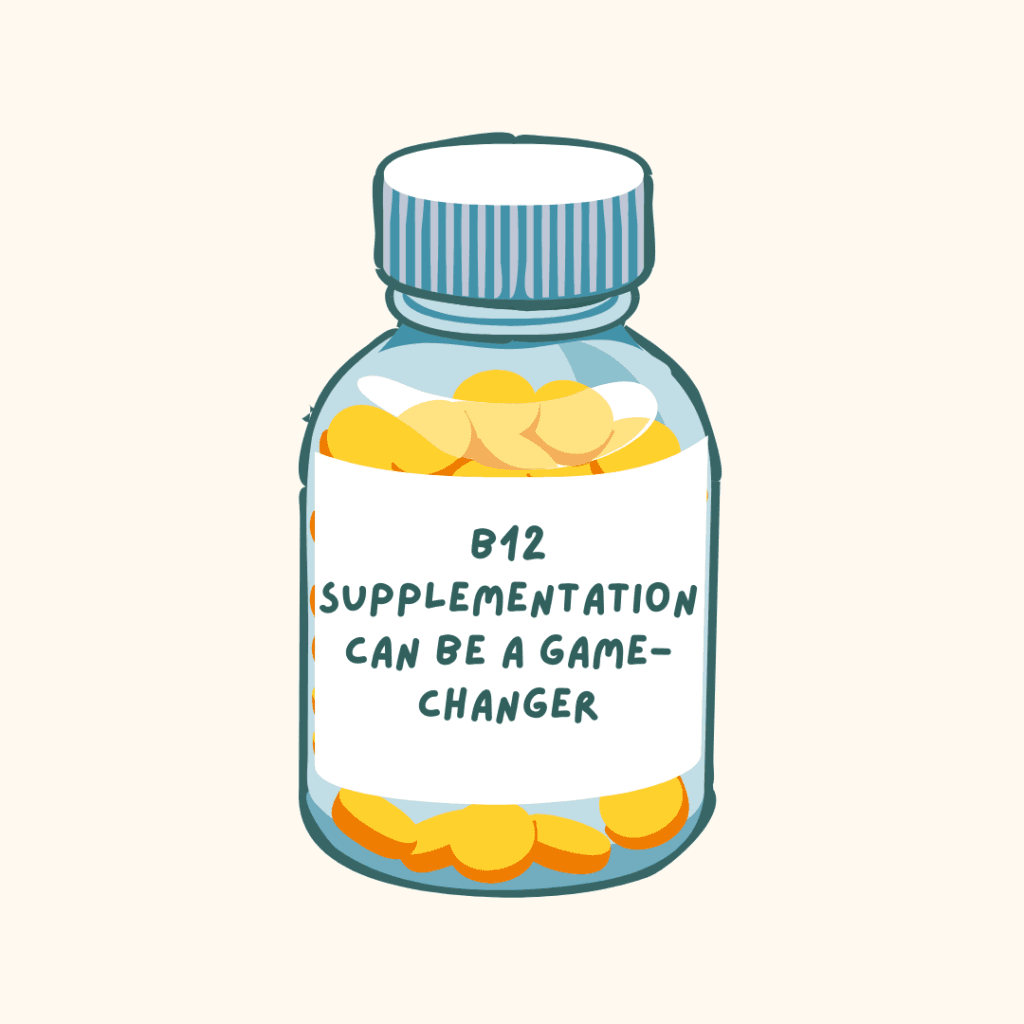Vitamin B12, a crucial nutrient often overlooked, plays a pivotal role in maintaining overall health and vitality. While many are aware of its importance for energy and red blood cell production, the lesser-known symptoms of B12 deficiency can often go unnoticed, leading to prolonged discomfort and health complications. In this article, I will delve into the lesser-known symptoms of B12 deficiency and explore how supplementation can offer relief and rejuvenation.
Understanding Vitamin B12 Deficiency:
Vitamin B12, also known as cobalamin, is essential for various bodily functions, including nerve health, DNA synthesis, and red blood cell formation. However, the body cannot produce B12 on its own, making it necessary to obtain sufficient amounts through diet or supplementation. Common sources of B12 include meat, fish, dairy products, and fortified foods. Despite its importance, B12 deficiency is more prevalent than often realised, particularly among certain demographic groups, including vegetarians, older adults, and individuals with gastrointestinal conditions.
Lesser-Known Symptoms of B12 Deficiency:
While fatigue and anaemia are well-known symptoms of B12 deficiency, several lesser-known signs may indicate inadequate B12 levels:
- Mood Changes: B12 deficiency can impact mood regulation, leading to symptoms such as depression, irritability, or anxiety. Individuals may experience unexplained mood swings or a persistent feeling of sadness.
- Tongue Changes: Changes in the appearance and function of the tongue, known as glossitis, can occur due to B12 deficiency. Symptoms may include a swollen, red, or sore tongue, along with a burning sensation or difficulty swallowing.
- Vision Changes: Optic nerve damage resulting from B12 deficiency can affect vision, causing blurred or double vision, light sensitivity, or difficulty focusing. These visual disturbances may occur gradually and worsen over time if left untreated.
- Memory Loss and Cognitive Decline: B12 plays a crucial role in cognitive function, and deficiency can lead to memory loss, confusion, or difficulty concentrating. Individuals may experience cognitive decline or “brain fog,” impacting daily activities and mental clarity.
- Balance and Coordination Problems: B12 deficiency can affect the nervous system, leading to neurological symptoms such as balance and coordination problems. Individuals may experience unsteadiness, difficulty walking in a straight line, or frequent falls.
How B12 Supplementation Can Help:
Supplementation with vitamin B12 can be transformative for individuals experiencing the lesser-known symptoms of deficiency. By replenishing B12 levels and addressing underlying deficiencies, supplementation can offer relief and rejuvenation:
- Improved Mood and Mental Well-Being: B12 supplementation can help alleviate mood disturbances and promote emotional stability, leading to a greater sense of well-being and resilience.
- Relief from Tongue and Mouth Discomfort: B12 supplementation can facilitate the healing of glossitis and alleviate discomfort associated with tongue changes, restoring normal function and sensation.
- Preservation of Vision: Supplementing with B12 can help protect the optic nerve and preserve vision, preventing further deterioration and promoting eye health in individuals with deficiency-related visual disturbances.
- Enhanced Cognitive Function: B12 supplementation supports brain health and cognitive function, helping to improve memory, concentration, and mental clarity in individuals experiencing cognitive decline.
- Restored Neurological Function: By supporting nerve health, B12 supplementation can alleviate balance and coordination problems, restoring mobility and reducing the risk of falls and injuries.
Final Thoughts:
Vitamin B12 deficiency can manifest in a variety of symptoms beyond fatigue and anaemia, impacting mood, cognition, and neurological function. Recognising the lesser-known signs of B12 deficiency is crucial for early intervention and effective treatment. Fortunately, supplementation with B12 can offer relief and rejuvenation, addressing underlying deficiencies and promoting overall health and well-being. If you suspect you may be deficient in B12 or experience any of the symptoms mentioned, consult with a healthcare professional to determine the appropriate supplementation regimen and take proactive steps towards better health and vitality.




1 comment
Recently, I faced the problem of choosing a clinic for treatment abroad and started looking for suitable websites. I found https://bookinghealth.com and was pleasantly surprised by its functionality. It has everything you need to organize treatment – information about clinics, their specializations, conditions of stay, and much more. I quickly found several options and was able to compare them with each other. Now I have a clear plan of action, and I’m sure I made the right choice thanks to this resource.